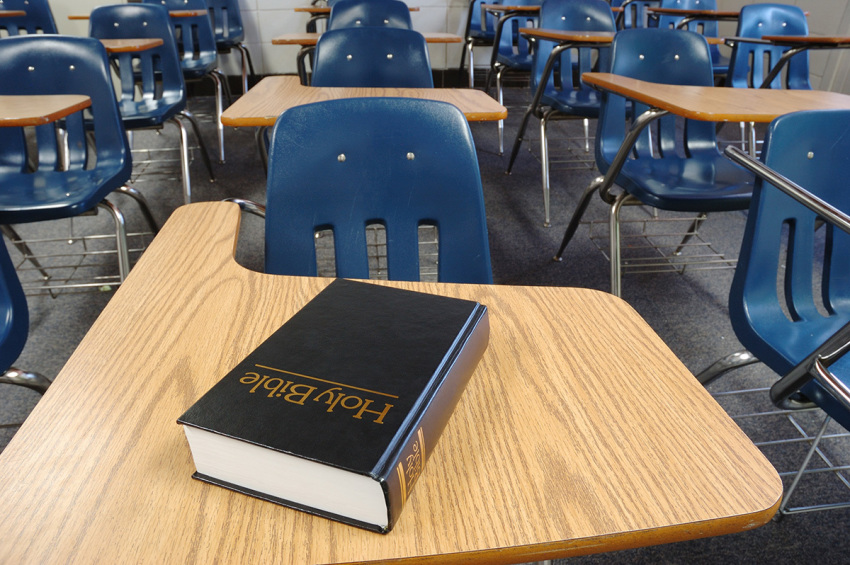Indiana may allow public schools to employ chaplains

Indiana lawmakers are considering legislation that, if enacted, would allow religious chaplains to be employed by public schools to provide both secular and religious services.
Known as Senate Bill 50 and authored by Republican Sen. Stacey Donato of District 18, the proposal was introduced earlier this month and passed committee last week.
The Republican Party controls both houses of the state legislature and the executive branch.
The legislation would allow a school superintendent or principal to employ or "approve as a volunteer" a chaplain, provided the person has "a master's degree in divinity, theology, religious studies, or a related field," two years of experience in counseling, passes a criminal background check and "has never been convicted of an offense requiring registration as a sex offender."
Additionally, the chaplain can only provide secular support to students or faculty unless a student, school employee or "a parent or guardian of the student receiving services" gives permission to receive religious services.
Donato says her legislation aims to give schools "an option to add additional resources for emotional needs of students."
"We are just trying to provide another tool for schools to help with the production of great students … offering an option for a chaplain to come in and assist," said Donato, as quoted by The Journal Review.
Under Indiana law, chaplains are already allowed to volunteer at public schools. The new bill would allow them to be school employees who provide "secular support." Donato says chaplains "must follow the same rules as school counselors."
The American Civil Liberties Union of Indiana opposes the legislation, arguing SB 50 would pave the way for violations of the Establishment Clause of the First Amendment to the U.S. Constitution.
"The primary role of chaplains is to provide pastoral or religious counseling to people in spiritual need," stated the ACLU of Indiana.
"Allowing them to assume official positions — whether paid or voluntary — in public schools will create an environment ripe for religious coercion and indoctrination of students."
The Rev. Gray Lesesne, pastor at Christ Church Cathedral in Indianapolis, gave testimony against the legislation, claiming that the measure would blur "appropriate professional boundaries."
"Even if I were to dispense secular advice to a young person as a chaplain, they would have a difficult time separating me from my role and calling, and could interpret that as religious counseling — whether that was intended by me or not," Lesesne said, as quoted by The Journal Review.
"I believe there is a place for clergy and people of faith in schools, and that is serving as a volunteer. … That is what chaplains are trained to do. We are not licensed, trained or called to serve in secular settings, or as mental health professionals or counselors."
In June of last year, Texas Gov. Greg Abbott signed legislation allowing school districts in his state to vote to approve the placing of chaplains in their public schools.
Texas Pastor Ryan Binkley, who is running a longshot campaign to get the Republican presidential nomination, told The Christian Post in an earlier interview that he supported the Texas legislation.
"I think the intent behind it is good and that's really just to try and provide ... better counseling support for our younger generation, and I think that's needed," Binkley said.



























